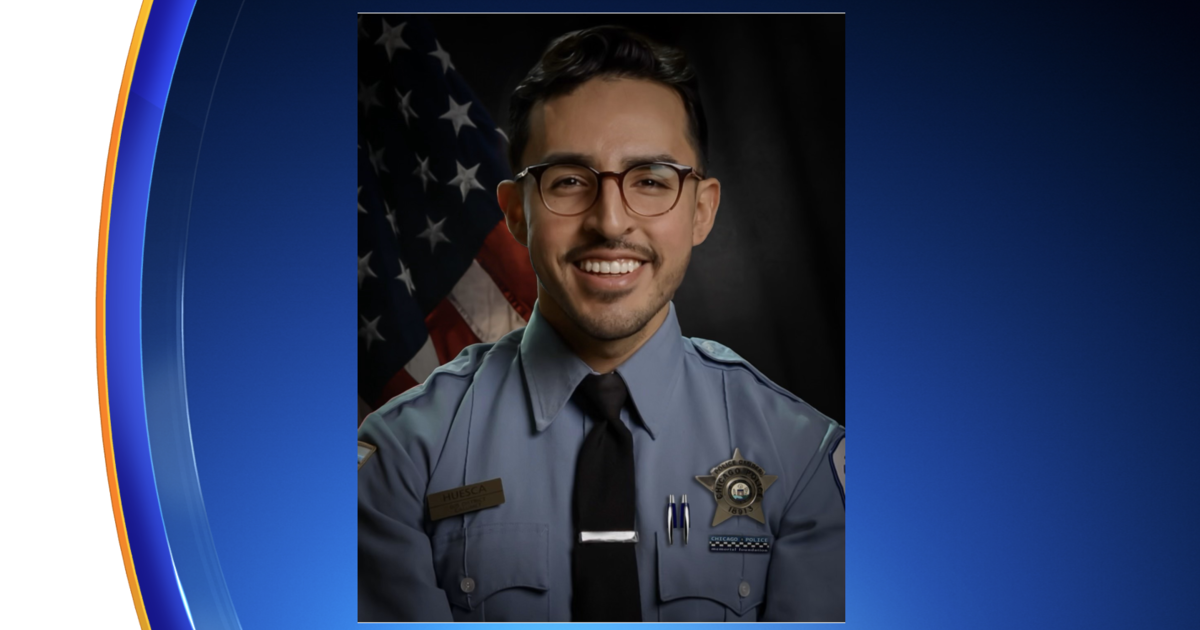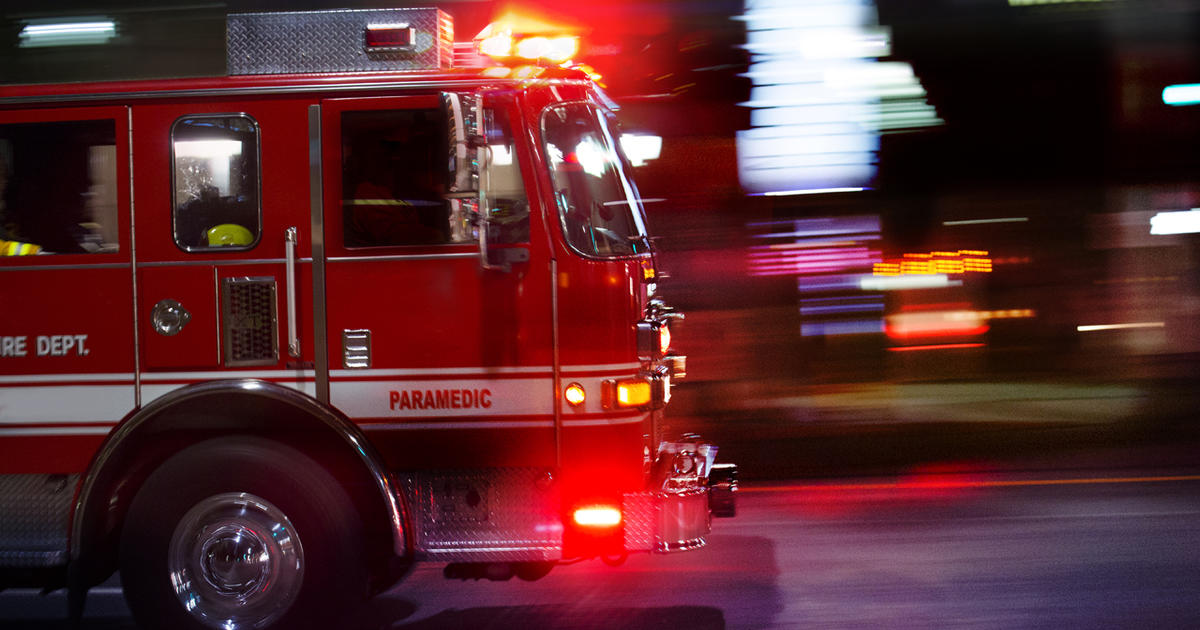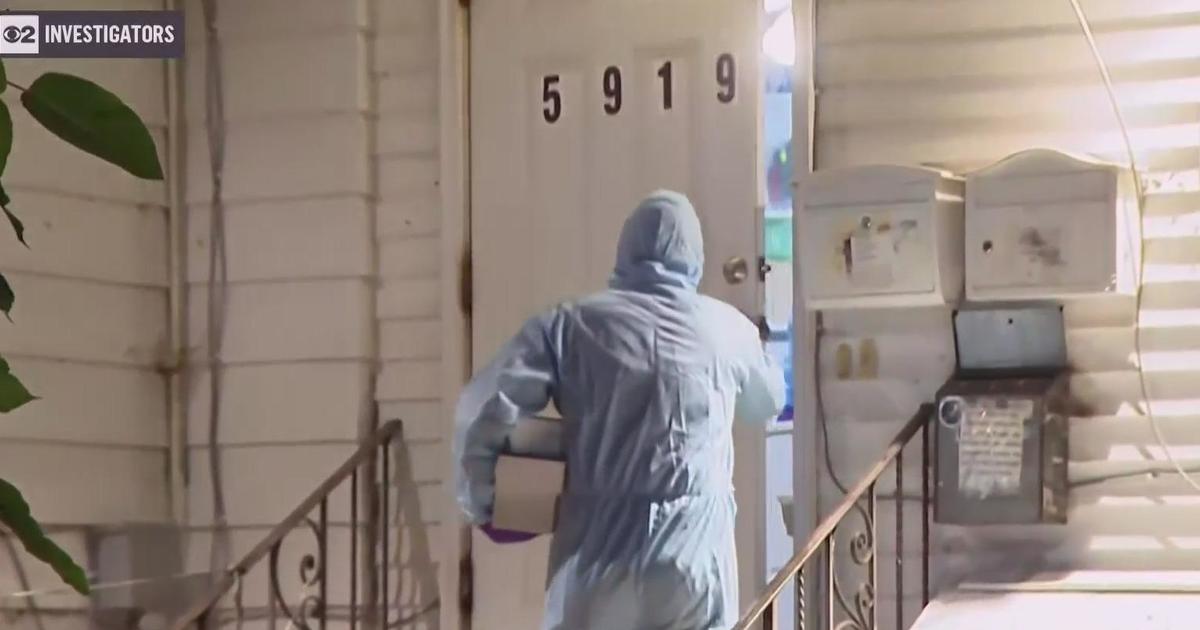As Public Hearings In Trump Impeachment Probe Begin, Congressman Quigley Says White House Should Let President's Advisors Testify
CHICAGO (CBS) -- As the House Intelligence Committee kicked off public hearings in the impeachment inquiry into President Donald Trump's effort to pressure Ukraine to investigate his political rivals, Democratic Illinois Congressman Mike Quigley accused Republicans of hypocrisy for dismissing the evidence as "hearsay."
Quigley said, if the Trump administration and Republicans in Congress truly wanted to hear first-hand evidence in the impeachment inquiry, the White House wouldn't be blocking any of Trump's top aides from testifying.
"It's interesting and curious that we're talking about hearsay evidence, and it is extraordinary to me that the committee's been able to get as much information as they have – direct or hearsay – given the obstruction," Quigley said.
The impeachment inquiry stems from a whistleblower complaint that raised concerns about a July 25 call between President Trump and Ukrainian President Volodymyr Zelensky. During the call, Trump urged Zelensky to investigate political rival Joe Biden, as well as a conspiracy theory that Ukraine has a server related to the 2016 hacking of Democratic National Committee emails.
The House Intelligence Committee held its first open hearing in the impeachment inquiry on Wednesday, calling acting Ukraine Ambassador William Taylor Jr. and Deputy Assistant Secretary of State George Kent as the first witnesses to testify in public.
The two diplomats insisted they are nonpartisan career public servants working to advance U.S. interests and bolster Ukraine's ability to counter Russian aggression, which they said was critical to U.S. national security.
Taylor and Kent described a monthslong effort led by the president's personal attorney Rudy Giuliani and other U.S. diplomats that placed those foreign policy objectives in jeopardy. Both said they eventually came to believe the release of crucial military aid worth nearly $400 million was contingent on Ukraine announcing investigations into supposed Ukrainian interference in the 2016 election; and Burisma, a Ukrainian energy company that had employed Hunter Biden, the former vice president's son.
The White House and congressional Republicans have blasted much of the testimony in the case – which until Wednesday was conducted in closed-door depositions – as relying largely on second- and third-hand "hearsay" accounts.
Quigley, however, noted the White House has blocked many of the president's top advisors with direct knowledge of the administration's dealings with Ukraine from testifying in the impeachment inquiry.
"We were not able to hear testimony by chief of staff [Mick] Mulvaney, [top White House lawyer] John Eisenberg, [senior associate counsel] Michael Ellis, [former national security advisor] John Bolton, more than a dozen witnesses," he said.
Kent and Taylor both acknowledged the State Department had ordered them not to appear for depositions, and it wasn't until Congress issued subpoenas that they were allowed to testify.
Quigley said if the White House truly had a problem with hearsay evidence, it wouldn't block the ability of witnesses to testify.
The congressman also argued that, just because some testimony might be hearsay doesn't mean it isn't reliable, nor that it shouldn't be used in impeachment proceedings.
"I think the American public needs to be reminded that countless people have been convicted on hearsay, because the courts have routinely allowed and created needed exceptions to hearsay. Hearsay can be much better evidence than direct as we have learned in painful instances, and it's certainly valid in this instance," Quigley said.
Meantime, fellow Illinois Congressman Raja Krishnamoorthi sought to push back on the Trump administration's claims that Ukrainian officials never felt pressured to launch the investigations.
"In fact, Ambassador Taylor, at your deposition in October, you stated that due to the hold that President Trump placed on aid to the Ukraine, the Ukrainians became, quote unquote 'desperate.' Isn't that right?" the congressman said.
Taylor said that was true.
"The minister of defense, for example, came to me – I would use the word desperate – to figure out why the assistance was being withheld. He thought perhaps if he went to Washington to talk to you, to talk to the Secretary of Defense, to talk to the President, he would be able to find out and reassure, provide whatever answer was necessary to have that assistance released," Taylor said.
During the hearing, Taylor revealed new information about the events at the center of the House impeachment inquiry.
Taylor said in his opening statement that he recently learned about a conversation a member of his staff overheard between President Trump and Gordon Sondland, the U.S. ambassador to the E.U. The conversation supposedly took place on July 26, the day after the president's now-infamous call with the Ukrainian president.
Taylor said the aide overheard the president ask Sondland about "the investigations." He also said Sondland told the aide that the president "cares more about the investigations of Biden" than U.S. policy toward Ukraine.
The staffer who overheard the conversation is David Holmes, a political officer in the U.S. embassy in Ukraine, three sources familiar with the matter told CBS News. Holmes is now expected to appear for a closed-door deposition on Capitol Hill on Friday.
Taylor and Kent both raised concerns about the central allegation in the impeachment inquiry -- that the Trump administration used U.S. military aid to Ukraine and the prospect of a White House visit to pressure the country to investigate the Biden family and events surrounding the 2016 election.
Taylor stressed the importance of U.S. security assistance to Ukraine, saying Ukraine was also a critical partner to the United States. He said it was "clearly in our national interest to deter further Russian interference" in Ukraine, and reiterated his belief that withholding assistance to Ukraine "would be crazy."
Kent also briefly addressed his concerns about Burisma, the Ukrainian gas firm that had employed Hunter Biden. Mr. Trump has claimed that Joe Biden, as vice president, pushed for the removal of a prosecutor general because he was investigating Burisma, when in fact the prosecutor was widely seen as corrupt by the West.
Kent said he raised concerns about Hunter Biden's service on the board of Burisma but "did not witness any efforts by any U.S. official to shield Burisma from scrutiny."
Democratic Chairman Adam Schiff opened the hearing by laying out the case against the president and saying the inquiry will "affect not only the future of this presidency, but the future of the presidency itself."
Devin Nunes, the Republican ranking member, decried the proceedings as a "carefully orchestrated media smear campaign." Early in the hearing, Republican lawmakers tried to raise procedural questions to delay the proceedings and demand testimony from the whistleblower whose complaint sparked the inquiry.
The rapidly escalating investigation is just the fourth time in U.S. history that Congress has seriously considered impeaching a president.



